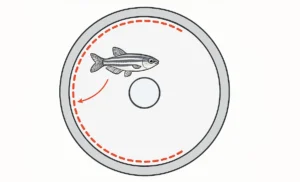

Data science is the backbone of pattern discovery, predictive analysis, and datification – all three of which are essential for the sustenance of life in general. So much so that the field has become trendy in itself, given the sophistication of its skill set to convert the data-based scientific reading into actionable insights or the lucrative nature of its practice.
Today, there is a huge demand for data science professionals and an equally huge gap in the supply of people with related skills. Almost all fields deem the data scientist as a professional specialized in superhuman powers – someone who magically wades through masses of data types and comes up with a brilliant solution for any given problem. To an extent, it is true taking into account the massive technological transition the world has witnessed and continues to do so (Costa and Santos, 2017).
However, nothing comes easy or at least not without trails. Irrespective of the sum and substance, no profession is without its challenges, and it would require some magic to make data science an exception. The challenges that data science professionals face in general and data scientists in specific are as serious as they involve life-changing opportunities.
Data scientists are up against the wall in their day-to-day operations, which require them to have critical thinking, business intelligence, sharp analytical skills, and computer programming proficiency. They are expected to become a hybrid of many worlds to able to straddle the realms of IT, business, medicine, environmental & social science, etc. (Ley and Bordas, 2018)
In this article, we are going to discuss opportunities as well as the real challenges that data scientists face. The following points are not developed out of thin air. We have listed down the issues that the existing and future data professionals are likely to face based on the experience and perspectives of those managing things in the data science field.
First, let us have a look at major challenges that the data scientists deal with or aspiring data scientists need to be prepared to handle:
Data science is too intricate and vast that often people end up being confused instead of motivated by the huge array of professional choices. This multidisciplinary field of science sustains itself by the systematic balance of several specialized areas. This, in turn, opens many doors for people looking to pursue a career as a data science professional. It is more of an opportunity than a challenge unless the career choice is to become a successful data scientist. As the CTO at Optimove, Tal Kedar says, “I would encourage new professionals to understand that data science is a bit like medicine—it’s a vast and vague term that encapsulates wildly different practices under one roof.”
Unlike a data analyst or data engineer, the data scientist’s expertise comprises of converting scientific inference – extracted from heaps of raw data – into actionable insights. The process takes some exceptional technical skills in analytical data, data construction and deconstruction, and absolute command over a couple of programming languages. To quote Mr. Kedar again, “Data scientists can have very different engineering skill sets [and be] experienced with very different platforms and tools.”
All of it points to the need for mastering the basics first, especially if you are aiming to learn how to become a data scientist. Getting into the details of data science vastness at this stage will only leave you superficially informed about lots of specializations, which is too inadequate to be master of any of the required skills. The best data scientists of our times never tried their hands at everything at once. Instead, their biggest challenge, yet the key to success has been the wisdom of narrowing their targeted professional focus to a specific area at a time. Once you have learned the basics, you will be in a better position to utilize the liberty of moving towards the platforms, tools, and areas you want to pursue further.
The contradiction is not lost us too! When companies hire a data scientist, they do not just expect the individual to know the “how” of the problem-solution mechanism, they expect the professional to be involved with the “why” of getting things done. Which goes beyond the mere expertise of high-end statistical & technical tools and data processing mechanisms. If anything, the specialized methodology is one of the biggest misconceptions that many aspiring data scientists harbor. As a data scientist, you will also need to acquire complete domain knowledge to be able to have subject matter expertise. Using domain knowledge for corporate solutions is often the biggest challenge that data scientists face. (Donoho, 2017)
As a data scientist, it will be your responsibility to successfully execute the ‘how’ as well as ‘why’ of your decisions. Because data scientists do not randomly work through data in a bid to locate certain connections, they put their in-depth knowledge of any given project with its various factors to develop a mental model. They then test this model by their data for validation or disproval. The director of data and analytics at the Cloud Data Platform Snowflake, Scott Hoover, says, “Having a mental model for one’s objective before touching any data is incredibly valuable. Instead of aimlessly fishing for signals in the data, thinking like a scientist by formulating hypotheses that are founded on some formal model of human behavior, economics, systems, etc. and then testing those hypotheses make for more successful data-science applications.”
The domain and model expertise is specifically challenging for machine learning data scientists. Their reliance on artificial intelligence or machine learning capabilities without domain expertise or sound objective often leads to a dead-end, which is not only a loss of expensive resources but the most valued entity called time. As is pointed out by the chief scientist at SnapLogic himself, “This is a waste of time. Data scientists should always start by asking how the customer experience will improve at a high level.”
The challenge of having a clear understanding of any given domain to develop an objective that can connect the problem to the data scientist’s choice of solution methodology, e.g., algorithms, is widely spread. It is one aspect that you, as a future data scientist, need to pay great attention to
To be able to develop automated operations and establish strategic competitive advantages for companies, data scientists are faced with challenges beyond understanding their data. A successful data scientist strives to provide actionable answers in an easy-to-understand manner. An aspiring data professional needs to work on skills that are a step further from historically-driven data reports.
The senior data analyst at Snowflake Cloud Data Platform, Andrew Seitz, says, “It can be exciting to share all of the technical complexities that got you to your conclusions. But what your stakeholders need are the key findings and action items. Save the details for the appendix (or Q&A).” Granted, data scientists spend their time living and breathing in complex technical terminology, and the responsibility to effectively communicate the project discoveries to the audience that does not understand the complexities of your methodology or jargon is more of a challenge than an average individual may comprehend. (Losup et al., 2011)
As an established as well as aspiring data scientist, you must prepare yourself to the challenge of articulating what your data model does and how it adds value to the project outcome. The good news is that it is something that you can practice beforehand. For instance, when you’re deeply involved in working through a complex data problem, imagine how you will explain just in-hand process to an ordinary person you meet at a party or any other social gathering. You need to be able to make people understand your data. Otherwise, you will have a tough and rather slow path to success, if any.
The career path of a data scientist is one of the best professional choices you can make today. It is not only the Harvard Business Review (HBR) that claimed data scientists to be the prestigious job position; neither is it the $108,000 average salary base that makes it the smartest choice for today. It is the possibility of staying relevant for the years to come. The IBM predictions are estimating a further surge with more than 300,000 job openings by 2020 in demand for data scientists.
It naturally begs the question of why data science or more to the point, why Big Data is here to stay? Well, in a world that daily produces 2.5 quintillion bytes of data, the big data analytics is going to be essentially relevant as long as there is data in the world.
Data Scientist is a highly-esteemed professional with the training and natural inclination to solve problems through data analysis and make discoveries in the Big Data world. Data scientists navigate the world around them by applying data mechanisms. They are at their finest when they are working hard to develop structural coherence in the massive amount of formless data to render analysis possible. In today’s competitive scenario of limitless challenges and incessant data inflow, data scientists guide the companies away from ad hoc analysis to an organized realm of predictive analytics.
With all this and an adept prediction of 40 zettabytes of data insertion by 2020, it comes as no surprise that data scientists are increasingly becoming sought-after professionals in the fields of big data analytics, IT, commerce, healthcare, etc.
A data scientist is required for many responsibilities in this data-driven era we are living through. Business analytics is not the only new dimension since Facebook, Yahoo, Google, etc., induction of data science professionals. Today, data scientists are actively involved in developing data products, visualizations & machine learning algorithms, and several software platforms.
Some of the frequently required data scientist roles are:
We have also compiled a list of high-profile tech companies that have data scientists career opportunities open right about now.
Accenture
This global management consulting company works in a range of services such as strategy, digital, technology, and operations services, Accenture is not only looking for data scientists, the company also needs data analysts, data engineers and AI software engineers.
Bristol Myers-Squibb (BMS)
This global biopharmaceutical company has a mission to develop and provide advanced medicinal treatments for several serious diseases. BMS is looking for data analytics scientists at biologics facilities.
Oath
This subsidiary of Verizon Communications supervises the operations on platforms such as Tumblr, Yahoo, HuffPost, and TechCrunch. Oath is looking to hire a data scientist for its headquarters.
Intel
A very well-known American multinational technology company has a data scientist position available for anyone with the required skills. The tech giant is hiring data professionals for its various offices at the same time.
Bank of America Merrill Lynch
This is one of the world’s largest financial firms that deal with more services than an average person can count. They are looking for highly skilled data scientists in their investment banking divisions

Monday – Friday
9 AM – 5 PM EST
DISCLAIMER: ConductScience and affiliate products are NOT designed for human consumption, testing, or clinical utilization. They are designed for pre-clinical utilization only. Customers purchasing apparatus for the purposes of scientific research or veterinary care affirm adherence to applicable regulatory bodies for the country in which their research or care is conducted.